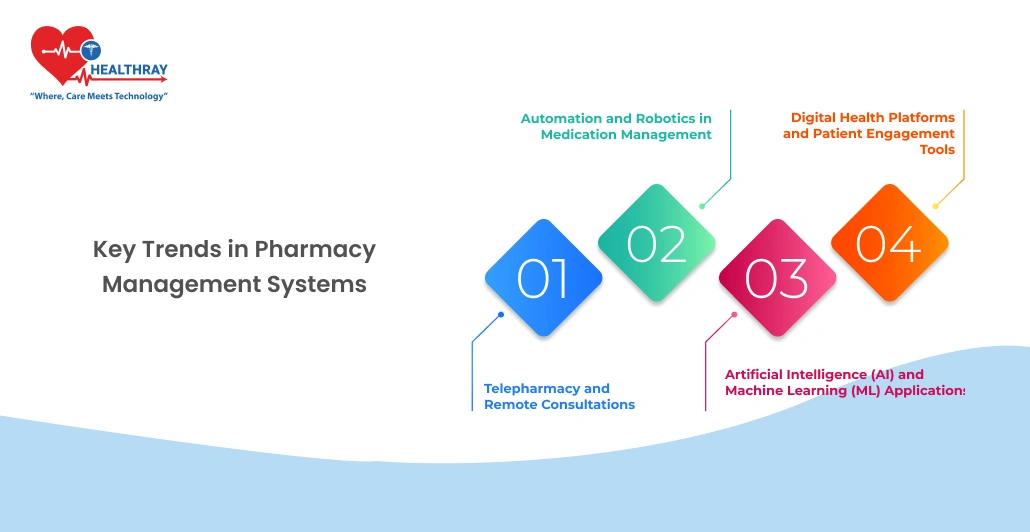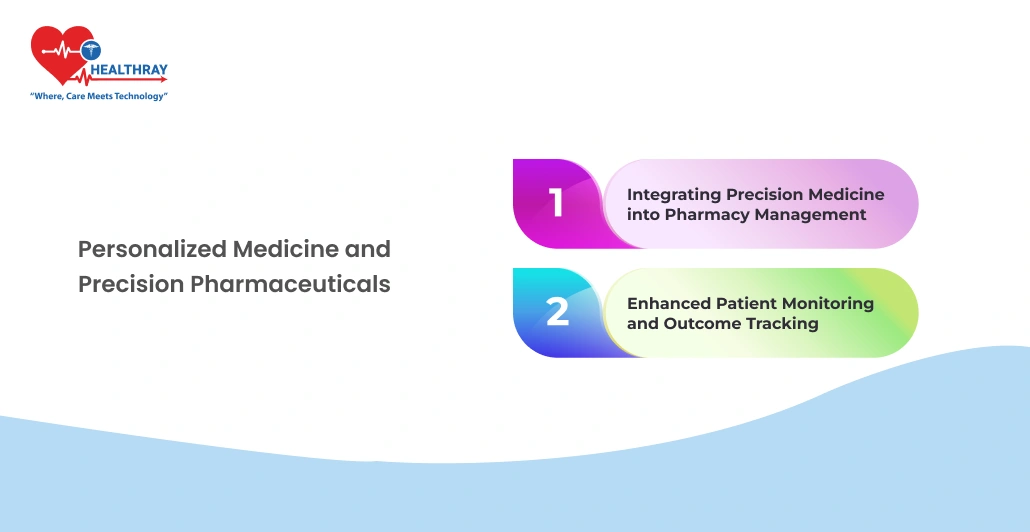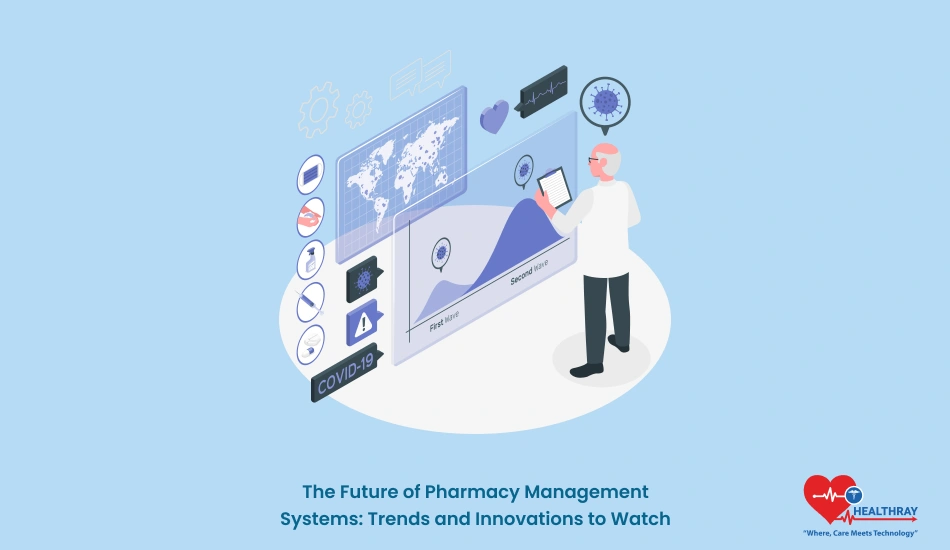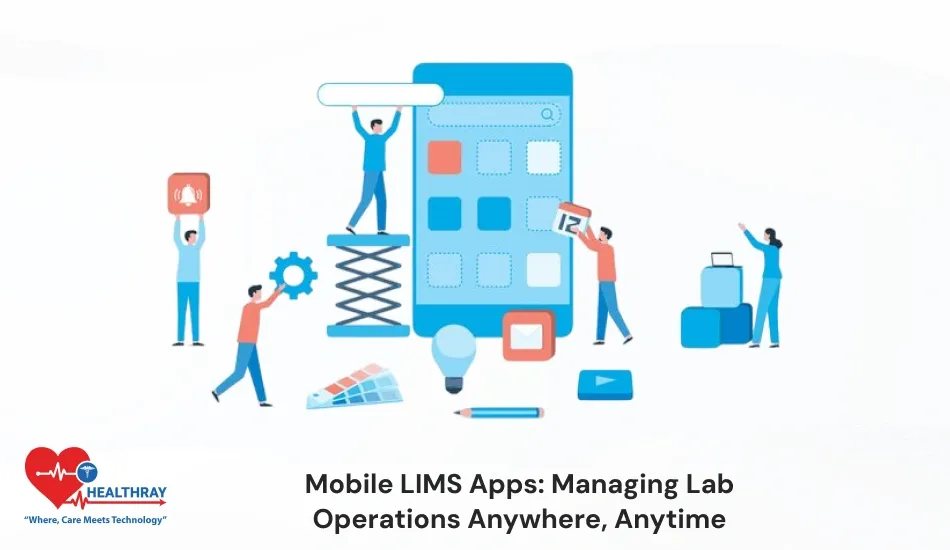Pharmacy Management Systems (PMS) are changing fast enough to notice, and in fact it is almost impossible not to notice. This shift has implications for any and all pharmacy managers and owners who aspire to be technologically current, reduce administrative work loads, and enhance the delivery of patient care. Pharmaceutical technology is no longer restrictive to stock control but also focused on use of intelligent tools to make pharmacies more efficient and safe.
In an effort to fulfill rising demand for accessibility, accuracy and compliance, the development of PMS has increased. Developments including telepharmacy, automation, artificial intelligence, and personalized medicines are in the spotlight of evolution and lead to new developments in how pharmacists do their job. As these technologies advance, they automate not only the mundane tasks of pharmacy but also offer us ways to improve patient contact and patient care.
In this article, we’ll explore the key trends shaping the Pharmacy Management System today and the innovations to keep an eye on. From AI-driven medication management to telehealth solutions that extend care to rural areas, understanding these changes will give pharmacy managers and owners a clear edge in providing top-quality patient care.
Key Trends in Pharmacy Management Systems

Telepharmacy and Remote Consultations
Telepharmacy is the activity of delivering pharmacy services to patients where they are. Pharmacy services have long been (1) hard to deliver in the rural and disadvantaged areas and (2) pharmacies equipped with novel technologies can now reach out to the disadvantaged population. For patients, implicit learning tips, can be received and such can be used to obtain prescriptions and work with a pharmacist from the comfort of home using appropriate internet channels. Pharmacists and pharmacy managers view telepharmacy as an opportunity to improve access, meet the demands of the patient wanting convenient care, and light up queues in physical spaces.
Automation and Robotics in Medication Management
Pharmacy staff have fewer hours on tasks, examples being labeling, packaging, and pill counting, due to automation. As an example, robotics is currently implemented to assist with discrete tasks, hence the pharmacist can then focus on tasks requiring higher added value from his/her expertise, in the sense of providing better care for the patient, e.g. Systems of automated inventory management (e.g., RFID or bar-code scanning) provide up-to-date inventory that will help prevent, for example, medication stockouts or wastage. Which in turn reduces opportunities for human error, improves workflows, and reduces time for task related to patients for pharmacy managers.
Artificial Intelligence (AI) and Machine Learning (ML) Applications
Pharmacies are making a strong arsenal that comes from artificial intelligence in order to manage the inventory more effectively, predict and analyze the patients’ behaviour, and improve medication adherence. Pharmacies have capabilities for optimizing stock management, to alert patients up to their medicine schemes, and to predict drug demand using a history-driven method, with the help of AI-based knowledge. By keeping patients on track with their treatments, this tech integration not only maximizes stock but also increases patient compliance.
Digital Health Platforms and Patient Engagement Tools
Digital health platforms are helping patients communicate better with their pharmacists and manage their own drugs more effectively. These platforms can be accessed by computer or mobile devices, and they offer functionalities such as virtual appointments, simple refill requests or medication alerts, etc., where the user receives prompts and/or information about his/her condition. Because of its capacity to elicit more personally engaged patient involvement, enhanced medication adherence, and thereby enhanced patient-pharmacy rapport, this change deserves to be noted by pharmacies.
Regulatory Compliance and Data Security
Ensuring Regulatory Compliance in Pharmacy Management System
Pharmacy Software Solutions must adhere to some very stringent rules for safety and security to safeguard patient health information and comply with medication control standards. Health information privacy is the keystone of both US and many other areas of compliance with the Health Insurance Portability and Accountability Act (HIPAA) (US), etc. Modern PMS are constructed with secure record keeping and documentation, as well as restricted ability to have access to sensitive data in order to ensure that the pharmacies continue to meet privacy law requirements.
In addition to data security, PMS aids pharmacies in the fulfillment of standards required by the FDA, focused on labeling and prescription standards). That is, every drug that is dispensed is properly tagged and documented with dosage information, contraindications, and expiration date, all while reducing the risk of regulatory infringements.
Strengthening Data Security with Advanced Technology
Due to the increasing popularity of cloud-based PMS, data protection has become a key issue. Illustrative examples of cybersecurity measures that prevent unauthorised invasions, or unlawful data access, for example, end-to-end encryption, secure user authentication, or periodic data backups. The use of multi factor authentication (MFA) and encrypted communication is increasing in order to better defend patient records and pharmacy data from potential cyber-attacks.
Pharmaceutical managers have the responsibility of choosing a PMS that is solid from a security perspective as security breakdowns can result in fines, ownership damage, and, most importantly, loss of trust from patients. Maximizing data security as a priority will guide pharmacies to meet compliance requirements while also earning the trust of patients through the implementation of a robust PMS.
Personalized Medicine and Precision Pharmaceuticals

Integrating Precision Medicine into Pharmacy Management
With the arrival of precision medicine, patient care has been transformed by the ability to provide individualised treatments, ranging from targeted pharmaceuticals to organic PPC herbs as well as medical history. To this shift, tools for clinicians and pharmacists providing pharmacotherapy guidance are being integrated by pharmacy management systems. Pharmacogenomic technologies such as biomarker assay and genetic data are only a few to show how pharmacists can actually select drugs best suited to each patient’s personal requirements in PMS treatment.
Pharmacies equipped with personalized medicine-enabled (PMS) pharmacists are best sites to deliver personalized and better treatment effects and fewer side effects. Tracking a patient’s response to specific medications over time is used by PMS to create more effective future treatments that contribute to both increased efficacy and wider reach of patient care.
Enhanced Patient Monitoring and Outcome Tracking
Personalized medicine also means closer monitoring of how patients respond to their medication. Now, PMS can take advantage of wearables and health apps to collect real-time data, which is able to be used for adjusting medication and dose. Pharmacist specialists gather data on adverse effects, adherence, and effectiveness that enables an active role in the treatment plan optimization.
Future Challenges and Considerations
Integration with Existing Systems
Since Pharmacy Management Systems are increasingly sophisticated, it is difficult to integrate novel technologies with legacy ones. Due to lack of IT infrastructure, use of old software, pharmacies might find it difficult to adopt new solutions and would benefit from a thorough redesign. Compatibility issues, workflow breaks, and a requirement for more expensive staff upskilling could arise from this. Pharmacy managers have to balance the potential of next generation enhancement, such as telepharmacy or artificial intelligence, against the possibility of things to go wrong during implementation.
Adapting to Rapid Technological Changes
PMS tools and features are continuously changing due to the constant evolution of healthcare technology. Managing awareness of, for example, enhancing automation and patient interaction technologies continues to be a challenge for the pharmacy manager. Pharmaceutical companies need to keep updated on the latest developments of Pharmacy Software System in order to continue to operate productively and to meet patient expectations, and this requires staff training and adaptability.
Balancing Innovation with Privacy and Security
Innovations in PMS lead to better patient care faster workflow, but they bring along privacy security risks. Pharmacies are required to look out for cyber threats with increased volume of data processed and stored in a digitized and cloud environment. Periodic auditing, compliance process and updated security policy ensure pharmacy’s compliance to the law and sensitive patient information security.
For pharmacy managers, the dilemma is to find the right balance between advanced functionality and strong security guarantees, between innovation and safety.
Looking Forward
The future of Pharmacy Management Systems includes increased automation as well as integration to optimize patient care and to manage data in patients. Yet, it is the ability for successful use that depends on proper planning, continuing staff training, and continuous data security. For pharmacy managers and store owners, mitigating these challenges will be key to harnessing the potential of PMS in practice.
Conclusion
Pharmacy Management Systems are quickly changing and bringing about innovations that are enabling patient care, optimizing pharmacy operations, and enhancing medication utilization. Trends including telepharmacy, automation, artificial intelligence (AI)-driven analysis, and digital health applications are just a few of the ways through which the discipline is being revolutionised. Managers of Hospital Management System, who are open to these new developments will be likely to experience higher efficacy, improved engagement with patients and enhanced results. However, when such new technology is used, a new set of challenges is generated, i.e., system integration, data security, and regulatory compliance during various and evolving regulations.
Pharmacy owners and managers can predict and plan their future businesses, by being aware and adaptable. Acceptance of these developments in an actively proactive manner will allow pharmaceutical professionals to meet patients’ needs, improve healthcare procedure and therefore compete effectively in a profession that is increasingly becoming technology-driven.




